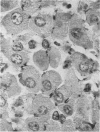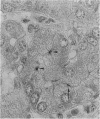Abstract
Guinea-pigs were experimentally infected with L. interrogans serovar copenhageni serogroup Icterohaemorrhagiae and their liver and kidney were studied by immunoelectron microscopy using the post embedding indirect immunogold labelling technique. Primary antibody was a purified rabbit anti-serum produced against the same leptospiral strain used in the inoculum. Gold-labelled leptospiral antigen (LAg) was found close to cell membranes of hepatocytes, kidney tubular cells and endothelial cells of the interstitial capillaries of the kidney. Afterwards it was internalized by hepatic and tubular cells, and eventually found in lysosomes. Phagolysosomes of Kupffer cells were also found to contain remnants of degraded leptospires and gold-labelled LAg. Gold-labelled intact leptospires were detected at the enlarged intercellular spaces between hepatocytes at the areas of hepatic cell plate disarray, showing the potential for leptospiral migration during the septicaemic phase of the disease potentially contributing to the pathogenesis of the lesions. The affinity of leptospiral antigenic material for cell membranes suggests an initial interaction with cell surface proteins followed by its internalization and cell damage. The nature of antigenic material detected, however, remains undefined; it may be a toxin, an enzyme or any other factor/s involved in leptospiral virulence.
Full text
PDF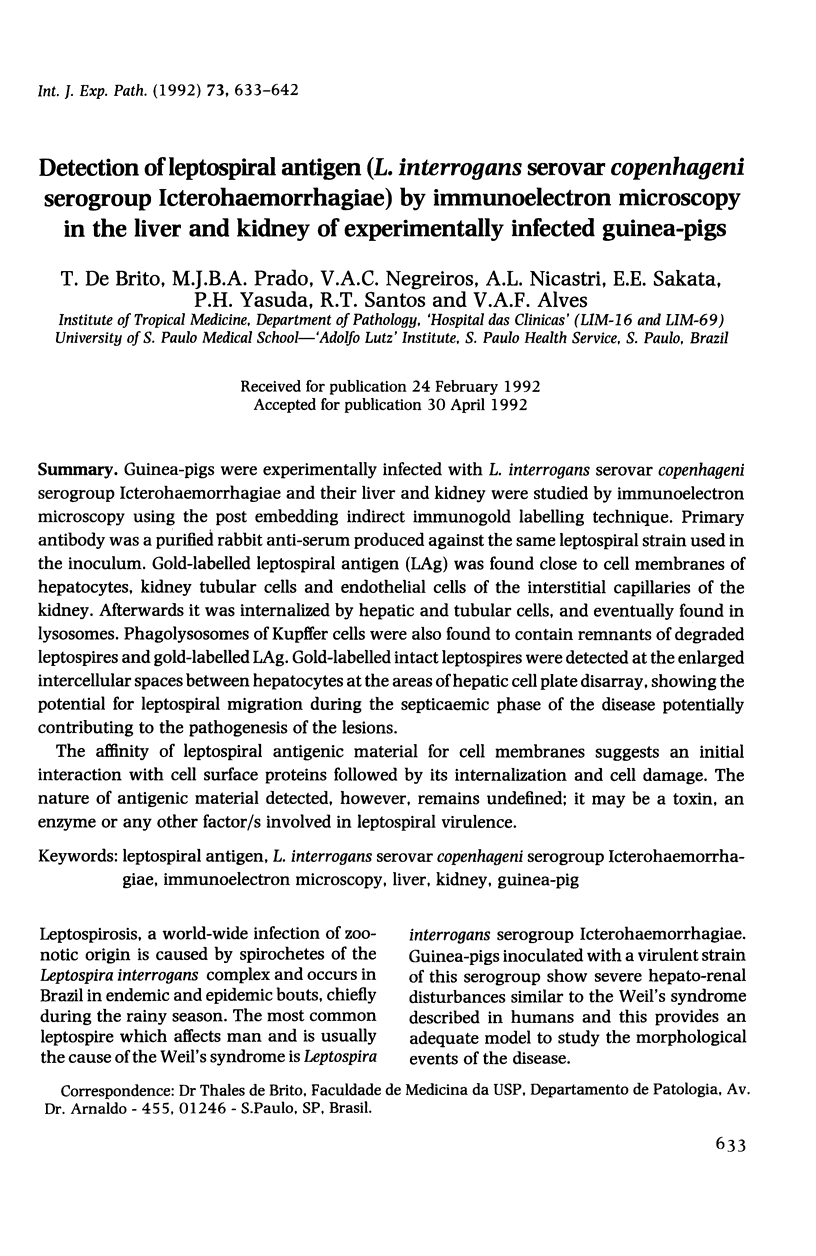
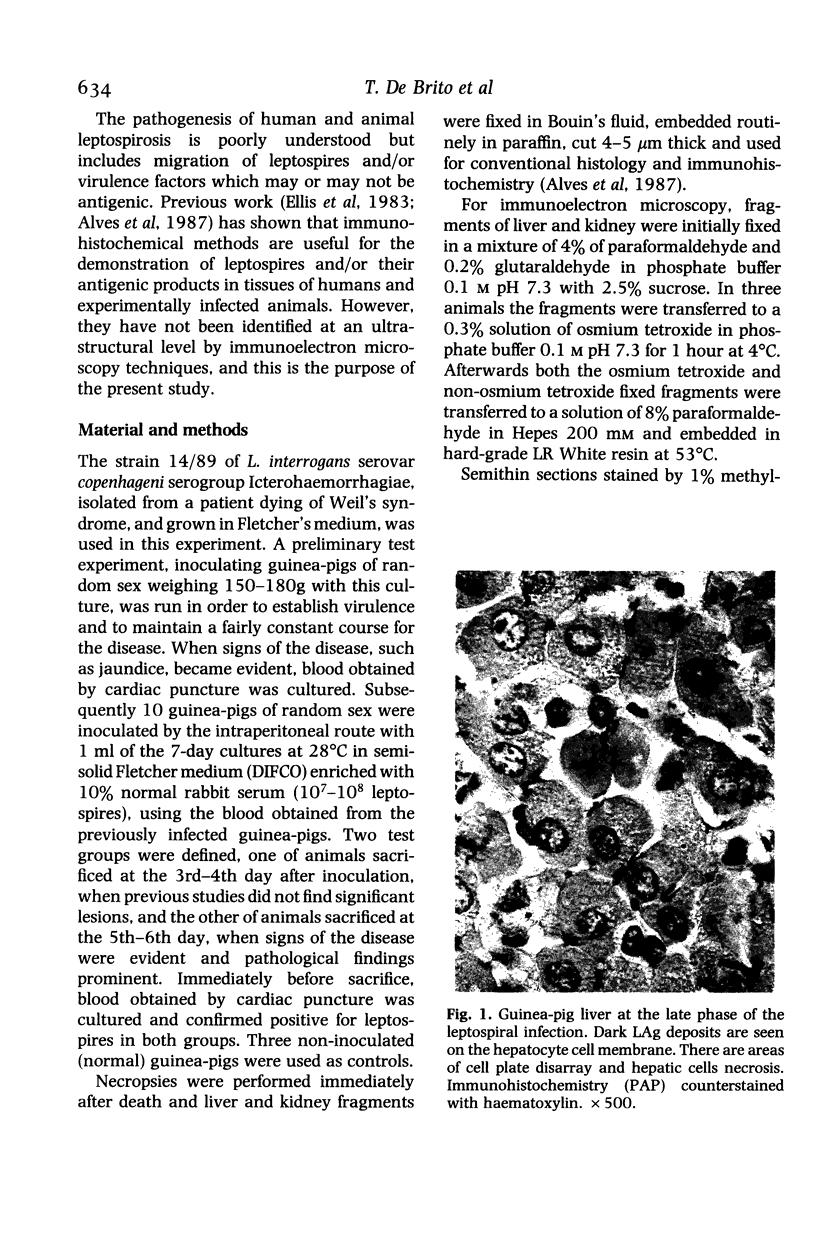
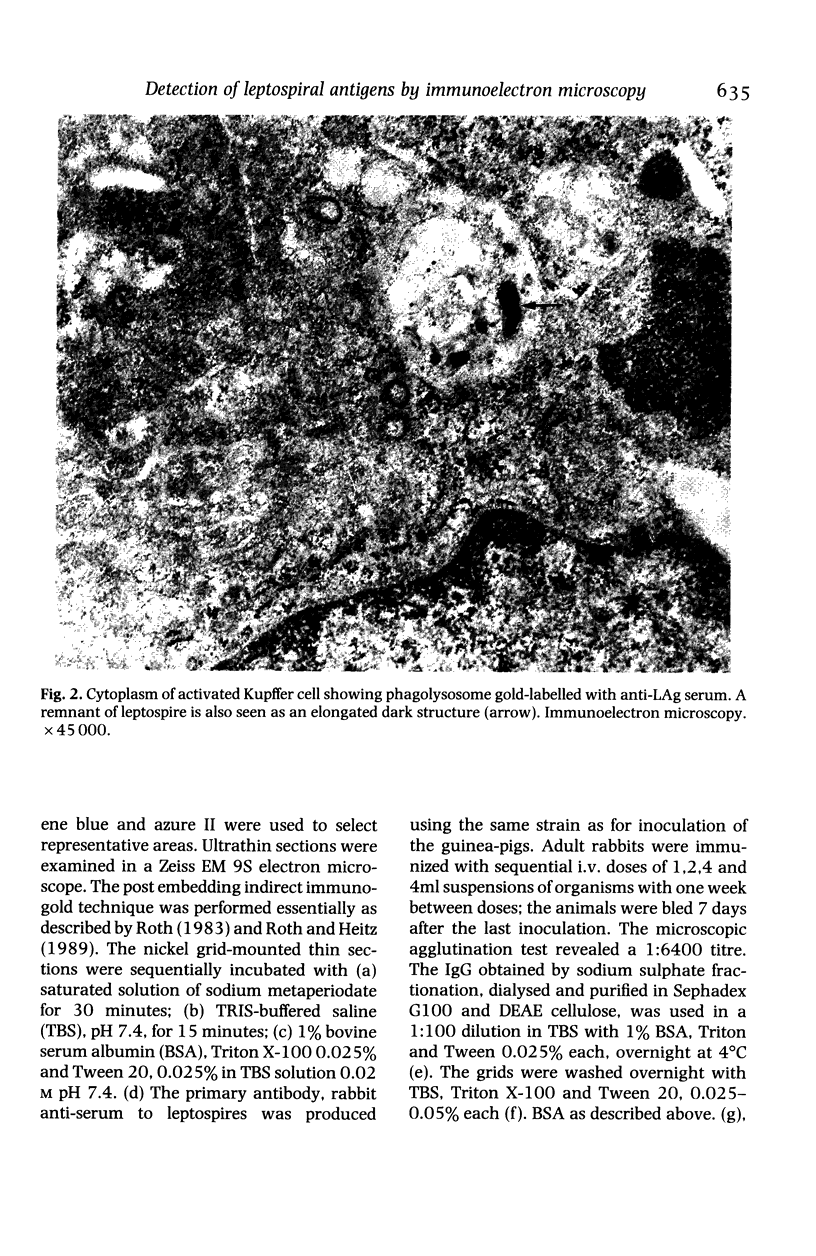
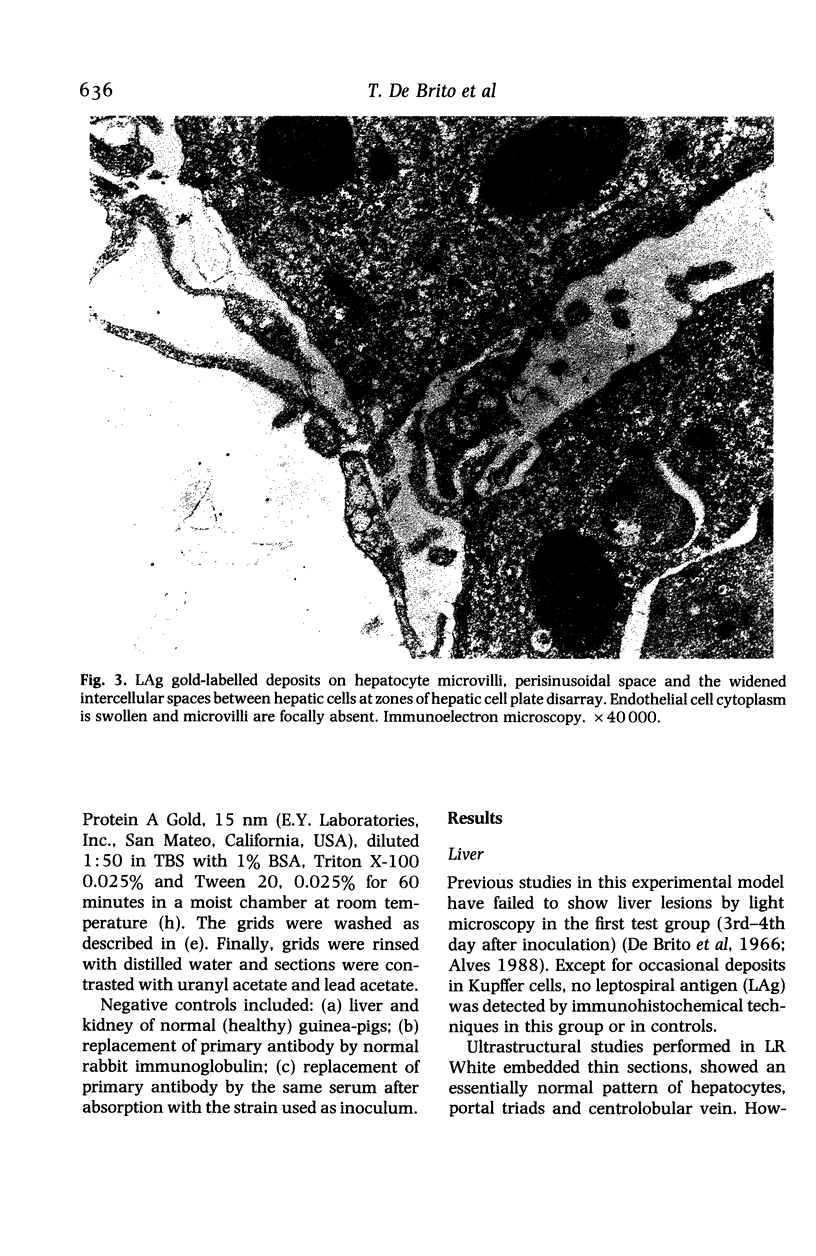
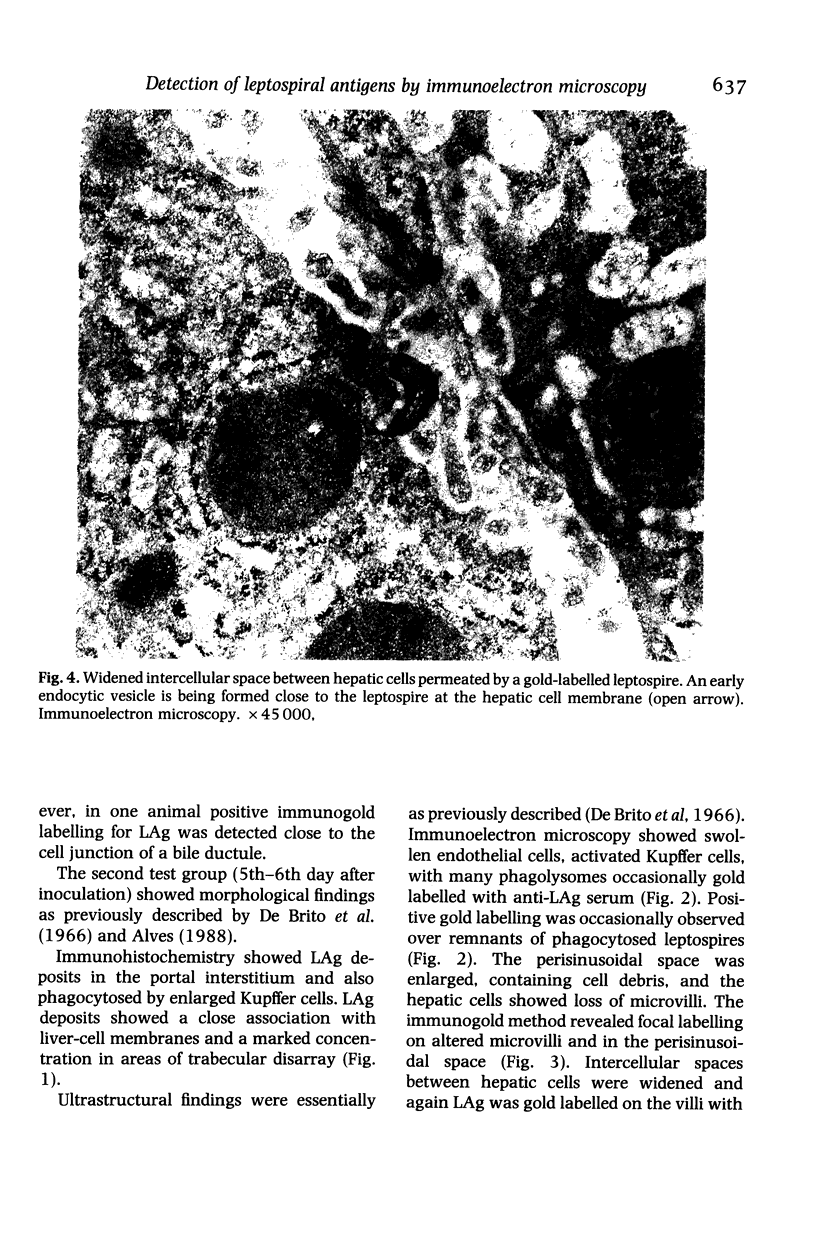
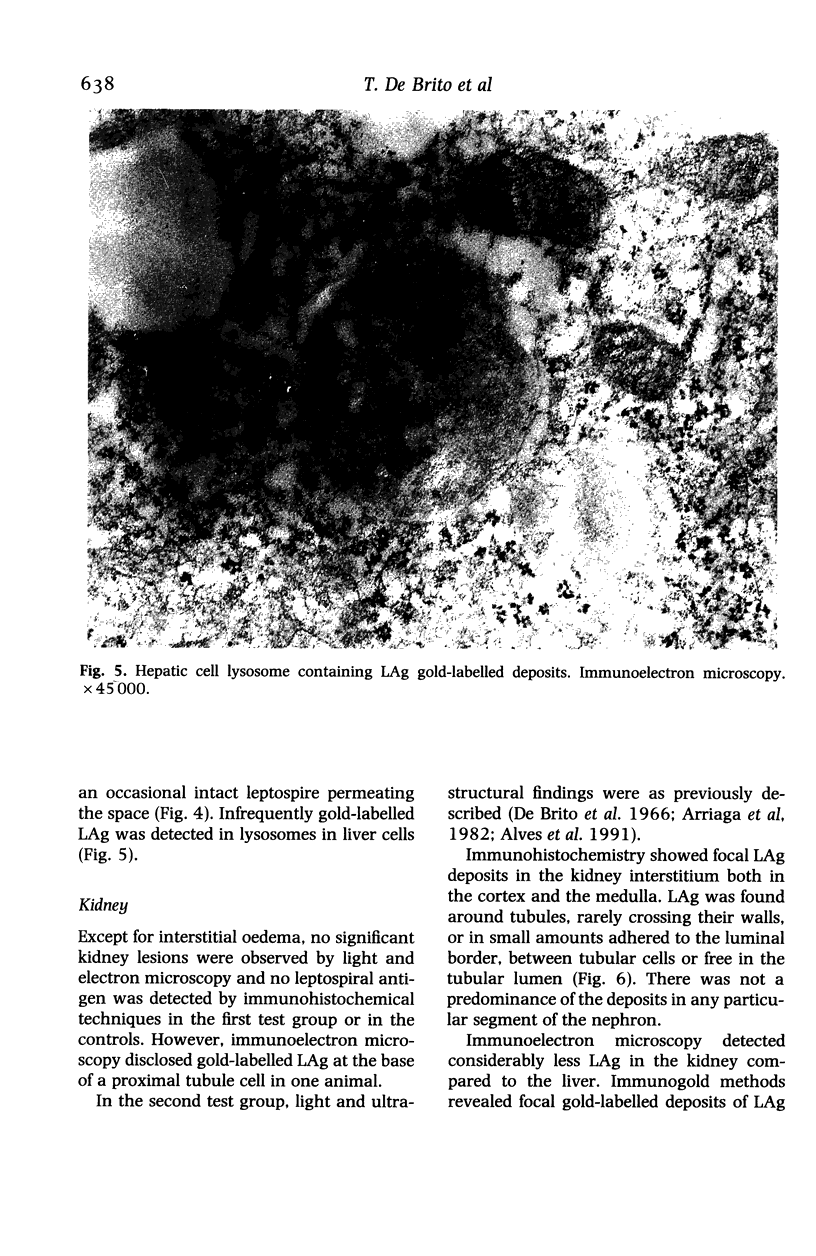
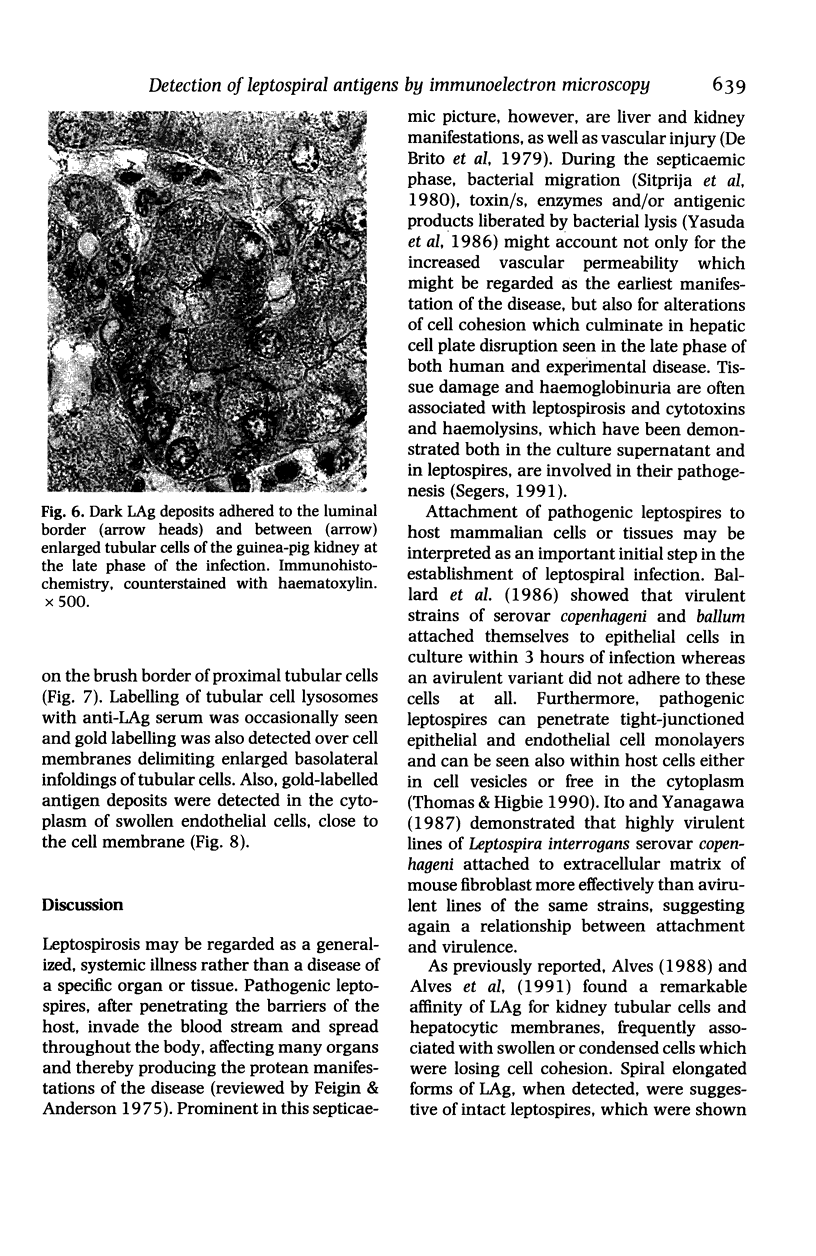
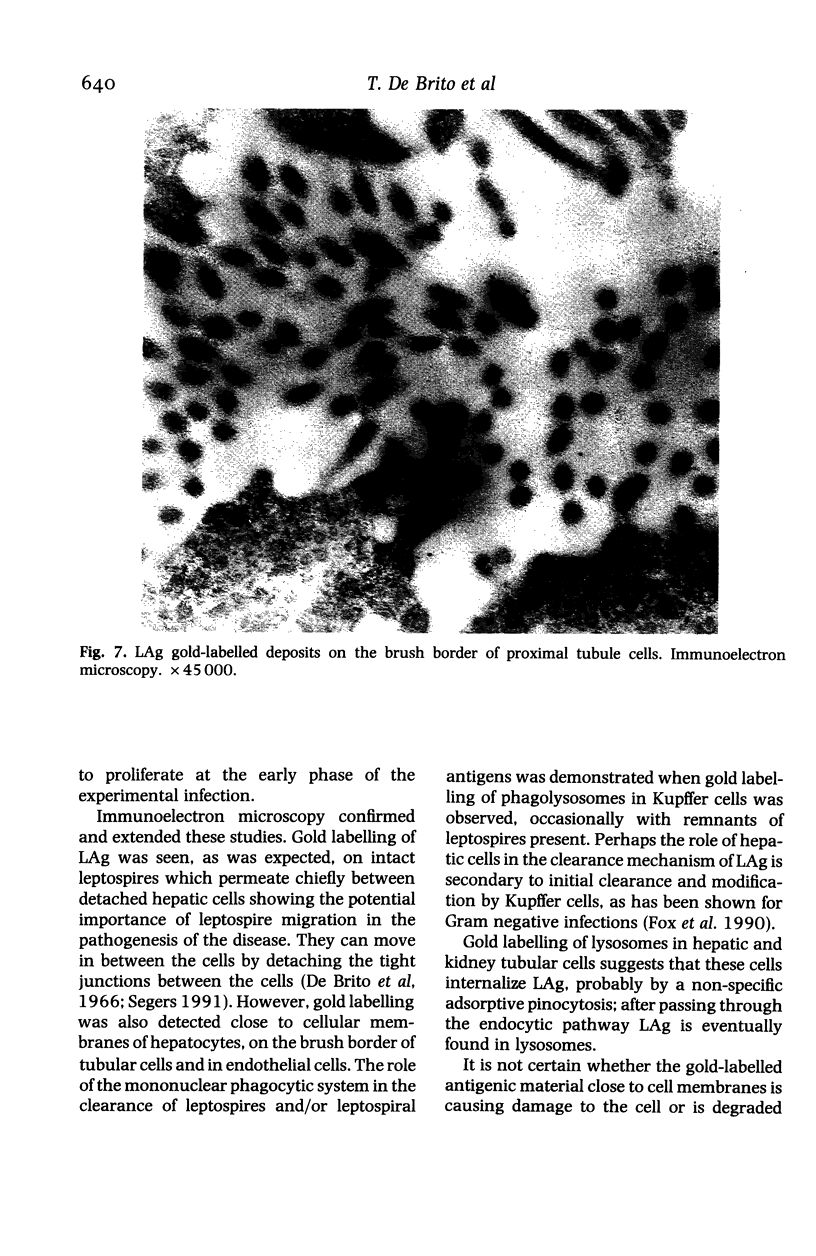
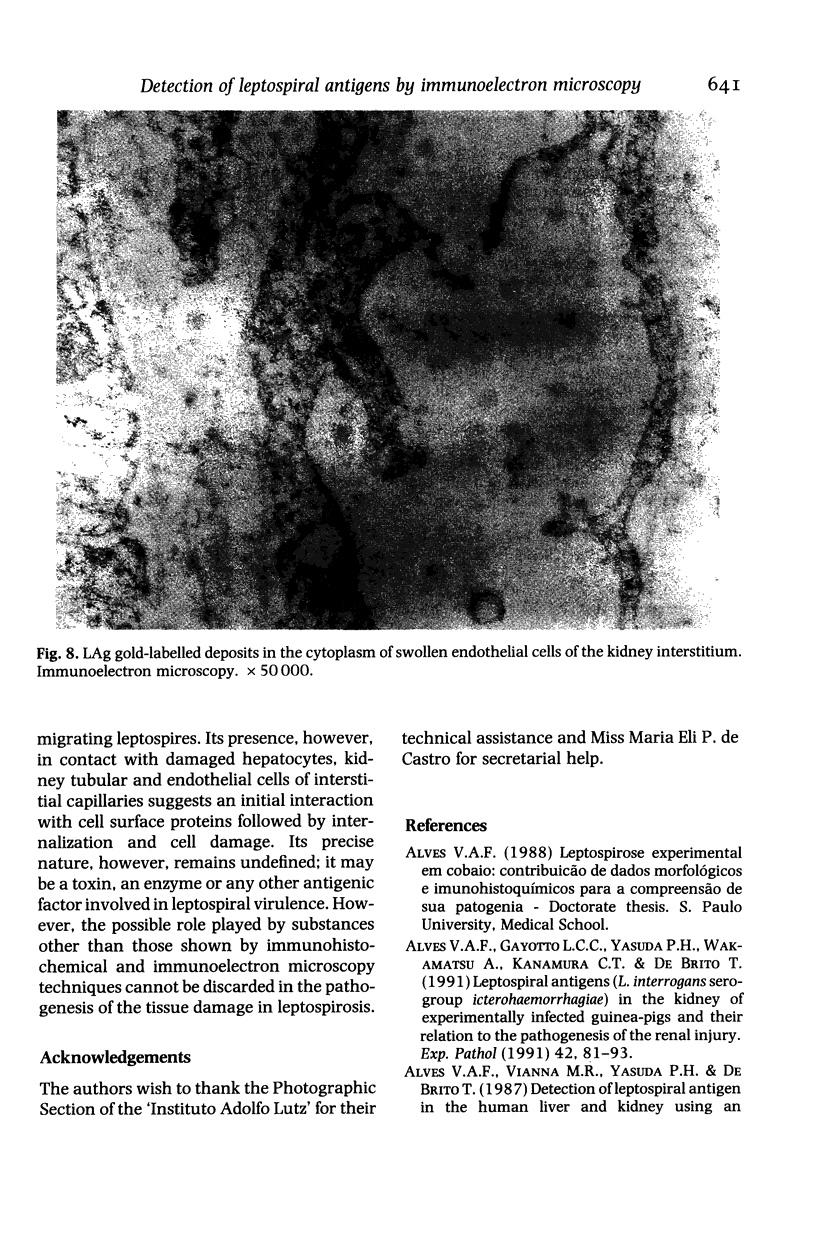
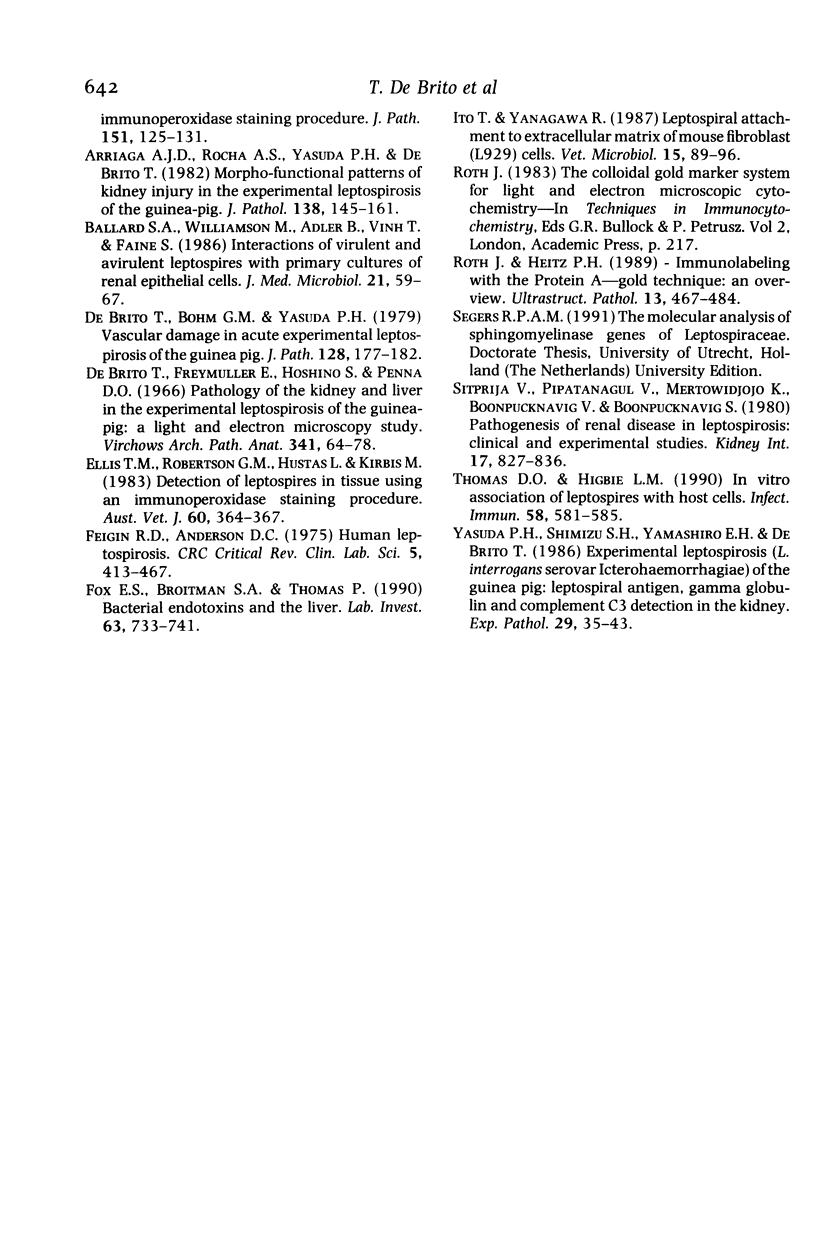
Images in this article
Selected References
These references are in PubMed. This may not be the complete list of references from this article.
- Alves V. A., Gayotto L. C., Yasuda P. H., Wakamatsu A., Kanamura C. T., De Brito T. Leptospiral antigens (L. interrogans serogroup ictero-haemorrhagiae) in the kidney of experimentally infected guinea pigs and their relation to the pathogenesis of the renal injury. Exp Pathol. 1991;42(2):81–93. doi: 10.1016/s0232-1513(11)80051-4. [DOI] [PubMed] [Google Scholar]
- Alves V. A., Vianna M. R., Yasuda P. H., De Brito T. Detection of leptospiral antigen in the human liver and kidney using an immunoperoxidase staining procedure. J Pathol. 1987 Feb;151(2):125–131. doi: 10.1002/path.1711510205. [DOI] [PubMed] [Google Scholar]
- Ballard S. A., Williamson M., Adler B., Vinh T., Faine S. Interactions of virulent and avirulent leptospires with primary cultures of renal epithelial cells. J Med Microbiol. 1986 Feb;21(1):59–67. doi: 10.1099/00222615-21-1-59. [DOI] [PubMed] [Google Scholar]
- De Brito T., Böhm G. M., Yasuda P. H. Vascular damage in acute experimental leptospirosis of the guinea-pig. J Pathol. 1979 Aug;128(4):177–182. doi: 10.1002/path.1711280403. [DOI] [PubMed] [Google Scholar]
- De Brito T., Freymüller E., Hoshino S., Penna D. O. Pathology of the kidney and liver in the experimental leptospirosis of the guinea-pig. A light and electron microscopy study. Virchows Arch Pathol Anat Physiol Klin Med. 1966 Apr 13;341(1):64–78. doi: 10.1007/BF00959245. [DOI] [PubMed] [Google Scholar]
- Dávila de Arriaga A. J., Rocha A. S., Yasuda P. H., De Brito T. Morpho-functional patterns of kidney injury in the experimental leptospirosis of the guinea-pig (L. icterohaemorrhagiae). J Pathol. 1982 Oct;138(2):145–161. doi: 10.1002/path.1711380205. [DOI] [PubMed] [Google Scholar]
- Ellis T. M., Robertson G. M., Hustas L., Kirby M. Detection of leptospires in tissue using an immunoperoxidase staining procedure. Aust Vet J. 1983 Dec;60(12):364–367. doi: 10.1111/j.1751-0813.1983.tb02849.x. [DOI] [PubMed] [Google Scholar]
- Feigin R. D., Anderson D. C. Human leptospirosis. CRC Crit Rev Clin Lab Sci. 1975 Mar;5(4):413–467. doi: 10.3109/10408367509107050. [DOI] [PubMed] [Google Scholar]
- Fox E. S., Broitman S. A., Thomas P. Bacterial endotoxins and the liver. Lab Invest. 1990 Dec;63(6):733–741. [PubMed] [Google Scholar]
- Ito T., Yanagawa R. Leptospiral attachment to extracellular matrix of mouse fibroblast (L929) cells. Vet Microbiol. 1987 Oct;15(1-2):89–96. doi: 10.1016/0378-1135(87)90133-7. [DOI] [PubMed] [Google Scholar]
- Roth J., Heitz P. U. Immunolabeling with the protein A-gold technique: an overview. Ultrastruct Pathol. 1989 Sep-Dec;13(5-6):467–484. doi: 10.3109/01913128909074531. [DOI] [PubMed] [Google Scholar]
- Sitprija V., Pipatanagul V., Mertowidjojo K., Boonpucknavig V., Boonpucknavig S. Pathogenesis of renal disease in leptospirosis: Clinical and experimental studies. Kidney Int. 1980 Jun;17(6):827–836. doi: 10.1038/ki.1980.95. [DOI] [PubMed] [Google Scholar]
- Thomas D. D., Higbie L. M. In vitro association of leptospires with host cells. Infect Immun. 1990 Mar;58(3):581–585. doi: 10.1128/iai.58.3.581-585.1990. [DOI] [PMC free article] [PubMed] [Google Scholar]
- Yasuda P. H., Hoshino-Shimizu S., Yamashiro E. H., De Brito T. Experimental leptospirosis (L. interrogans serovar icterohaemorrhagiae) of the guinea pig: leptospiral antigen, gamma globulin and complement C3 detection in the kidney. Exp Pathol. 1986;29(1):35–43. doi: 10.1016/s0232-1513(86)80004-4. [DOI] [PubMed] [Google Scholar]



